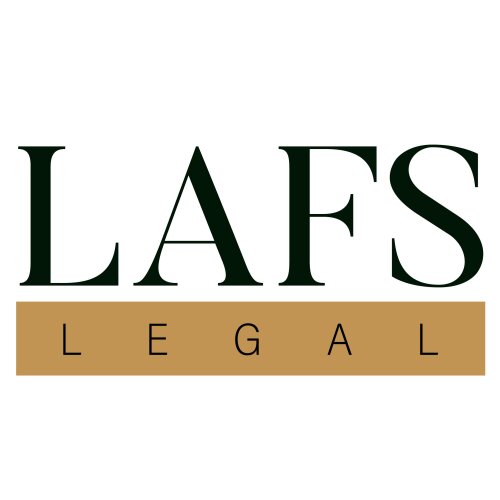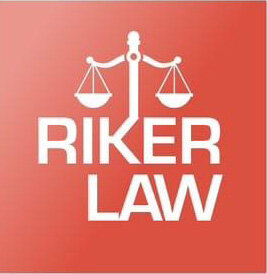Best Wrongful Termination Lawyers in Bangkok
Share your needs with us, get contacted by law firms.
Free. Takes 2 min.
List of the best lawyers in Bangkok, Thailand
Legal guides written by Smart Legal Solutions:
- Main Legal Measures to Protect Foreign Investment in Thailand
- The importance of the geographical indications for the Thai economy
About Wrongful Termination Law in Bangkok, Thailand
Wrongful termination in Bangkok, Thailand, refers to the illegal dismissal of an employee without just cause or through unfair procedures. The Labor Protection Act (LPA) is the primary legislative framework governing employment relationships in Thailand. Under this act, employers are obliged to adhere to specific procedures and standards when terminating an employee. Wrongful termination not only violates these laws but can also lead to financial and reputation consequences for employers. Employees who face wrongful termination can seek remedies through legal channels, including compensation and reinstatement.
Why You May Need a Lawyer
Individuals seeking legal help for wrongful termination often do so because of complex procedural challenges and the need to prove unjust dismissal. Common situations where a lawyer is helpful include: cases involving contractual disputes, failure to provide adequate notice or compensation, discrimination, and retaliation against whistleblowers. Lawyers who specialize in labor law can assess the validity of the termination, gather necessary documentation, negotiate settlements, and represent clients in court if needed.
Local Laws Overview
Key aspects of local laws relevant to wrongful termination in Bangkok, Thailand, include:
- Labor Protection Act (LPA): Establishes the framework for employee rights, notice periods, and compensation for dismissals.
- Contractual Obligations: Employment contracts should clearly outline terms for termination, including notice periods and severance pay.
- Unjust Dismissal: The LPA protects against terminations that occur without reason or due to improper procedures.
- Severance Pay: Employees terminated without appropriate procedure are entitled to statutory severance pay under the LPA.
- Discrimination and Retaliation: Terminations based on discrimination or retaliation may constitute wrongful dismissals under Thai law.
Frequently Asked Questions
What constitutes wrongful termination in Bangkok, Thailand?
Wrongful termination occurs when an employee is dismissed without just cause or through unfair procedures, often violating the terms set out by the Labor Protection Act or their employment contract.
How long do I have to file a wrongful termination claim?
Generally, claims should be filed within 90 days from the date of termination, although consulting a lawyer to understand applicable deadlines is advisable.
What can I expect in terms of compensation if my termination is deemed wrongful?
If your termination is deemed wrongful, you may be entitled to compensation for severance, back pay, damages for emotional distress, and possibly reinstatement of employment.
Do I have to go to court to resolve a wrongful termination case?
Not necessarily. Many cases are settled out of court through negotiations, though court intervention may be required in unresolved disputes.
Can I be fired without notice under Thai law?
In most cases, employers must provide notice or payment in lieu of notice unless the dismissal is for gross misconduct or other serious offenses.
What is the role of the Labor Court in wrongful termination cases?
The Labor Court in Thailand handles disputes related to employment, including wrongful termination cases, and has the authority to issue judgments on such matters.
Can I claim wrongful termination if I was on probation?
Yes, employees on probation are also protected under Thai labor law, though the standards for termination may differ slightly from permanent employees.
Is it possible to claim wrongful termination if I resigned due to pressure?
Yes, if you can prove that you resigned due to undue pressure or a hostile work environment created by your employer, it may amount to constructive dismissal.
Can an employment contract override my rights under the Labor Protection Act?
No, contractual terms must comply with the minimum standards set by the Labor Protection Act, and any term that contravenes the act is generally invalid.
What evidence do I need to support my wrongful termination claim?
Relevant evidence may include employment contracts, termination notices, witness statements, records of work performance, and any communications regarding the termination.
Additional Resources
Those seeking assistance or more information on wrongful termination can consider the following resources:
- Department of Labor Protection and Welfare - Provides guidance and support for employment-related issues.
- The Labor Court - Handles legal disputes related to employment and wrongful termination.
- Legal Aid Clinics and NGOs - Offer free or low-cost legal advice and assistance in employment matters.
Next Steps
If you believe you have been wrongfully terminated, consider the following steps:
- Document Everything: Gather all relevant documentation related to your employment and termination.
- Seek Legal Advice: Contact a lawyer who specializes in employment law for an assessment of your case.
- File a Complaint: If necessary, file a formal complaint with the relevant authorities or initiate a lawsuit within the prescribed time limits.
- Explore Settlement Options: Be open to negotiation and settlement discussions as a potential resolution.
- Stay Informed: Continuously educate yourself on your rights and any legal proceedings.
Lawzana helps you find the best lawyers and law firms in Bangkok through a curated and pre-screened list of qualified legal professionals. Our platform offers rankings and detailed profiles of attorneys and law firms, allowing you to compare based on practice areas, including Wrongful Termination, experience, and client feedback.
Each profile includes a description of the firm's areas of practice, client reviews, team members and partners, year of establishment, spoken languages, office locations, contact information, social media presence, and any published articles or resources. Most firms on our platform speak English and are experienced in both local and international legal matters.
Get a quote from top-rated law firms in Bangkok, Thailand — quickly, securely, and without unnecessary hassle.
Disclaimer:
The information provided on this page is for general informational purposes only and does not constitute legal advice. While we strive to ensure the accuracy and relevance of the content, legal information may change over time, and interpretations of the law can vary. You should always consult with a qualified legal professional for advice specific to your situation.
We disclaim all liability for actions taken or not taken based on the content of this page. If you believe any information is incorrect or outdated, please contact us, and we will review and update it where appropriate.















